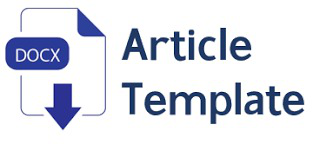Peradilan Desa Adat sebagai Instrument Integral Pembangunan Hukum Nasional Ditinjau dari Undang-Undang No 6 2014 Tentang Desa
DOI:
https://doi.org/10.14421/sh.v4i2.1989Abstract
This article is based on research about representation of customary judicialpractice and customary law after Law No. 6/2014 About the Village. The
Elimination of customary law from the national legal system was not able to remove the
whole customary judicial practice and customary law in social life. Customary justice is
still alive in the daily lives of indigenous peoples. This produces a gap between the legal
realities with reality arbitrate indigenous peoples. Law No. 6/2014 About the
Village will create a lot of consequences at the level of village government in the reestablishment of justice among indigenous villages. Article 103 paragraph “e” mentions
that one of the responsibilities Customary Village is organizing the peace court assembly
Indigenous Village according to the provisions of laws and regulations. This is a fresh
wind to the development of village justice. The Article 18 B subsection (2) and Article
28 subsection (3) in 1945 Constitution became evidence of the recognition and respect
for the rights of traditional customary law community unit should be derived in the
legislation under the 1945 Constitution. In accordance with the theory of the hierarchy
of norms, so every rules or legislation should not contrary with the Basic Constitution,
in this case is the 1945 Constitution. With the recognition of traditional rights of
traditional law community unit (including the prosecuting authority) in 1945
Constitution, should the existence of customary justice also received recognition in the
law. "Recognition" is meant here is the formal ratification of an entity (the traditional
justice) which has a special status.
References
Amdani, Yusi Proses Pelaksanaan Penyelesaian Perselisihan Di Lembaga Peradilan
Adat Aceh Tingkat Gampong (Desa), dalam “Asy-Syir’ah” Jurnal
Ilmu Syari’ah dan Hukum Vol. 48, No. 1, Juni 2014.
Anonim, Sistem Peradilan Adat dan Lokal di Indonesia, Peluang & Tantangan,
(Jakarta: Aliansi Masyarakat Adat Nusantara (AMAN)-
Partnership for Governance Reform, 2003.
Assiddiqie, Jimly dan Safa’at, Ali, Teori Hans Kelsen tentang Hukum, Jakarta:
Sekretariat Jendral dan Kepanitraan Mahkamah Konstitusi
Republik Indonesia, 2006.
Atmaja, Gede Marhaendra Wija, Politik Hukum Dalam Pengakuan Kesatuan
Masyarakat Hukum Adat Dengan Peraturan Daerah, Disertasi,
Program Doktor Ilmu Hukum Universitas Brawijaya, 2012.
Hadikusuma, Hilman, Peradilan Adat di Indonesia, CV Miswar, Jakarta,
I Ketut Sudantra, dkk., Dinamika Pengakuan Peradilan Adat dalam Politik
Hukum Kekuasaan Kehakiman d Indonesia, Program Doktor Ilmu
Hukum Fakultas Hukum Universitas Brawijaya Malang, 2013.
Laporan Akhir Tim Pengkajian Hukum tentang Peluang Peradilan Adat dalam
Menyelesaikan Sengketa antara Masyarakat Hukum Adat dengan Pihak
Luar, Pusat Penelitian dan Pengembangan Sistem Hukum
Nasional Badan Pembinaan Hukum Nasional Kementerian
Hukum dan Hak Asasi Manusia RI Tahun 2013.
Laujeng, Hedar, Mempertimbangkan Peradilan Adat, HuMa, 2003.
Mahadi, Uraian Singkat tentang Hukum Adat Sejak RR Tahun 1854,
Bandung: Alumni, 1991.
Mahfud MD, Moh., Politik Hukum di Indonesia, Edisi Revisi, Jakarta:
Rajawali Pers, 2009.








